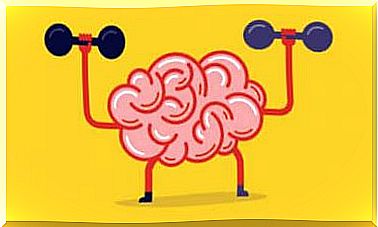Difficult Relationships: How To Reinterpret Your Narrative

We are social beings. It is very complicated, if not impossible, to maintain a healthy life without relating to anyone. Since children we socialize and are part of more or less numerous groups that can change and expand over time and give rise to relationships of all kinds, including difficult relationships.
Who doesn’t have any strained relationships? Whether in the family, at work, or even in love relationships, all kinds of relationships can become difficult at any given time.
We may think that these people appear in our lives as obstacles, but we can also go a little further and see them as challenges.
Make no mistake: life is an ongoing challenge. As human beings we are moving through stages, cycles and relationships.
When people relate, with their respective backgrounds, personalities, temperaments, present circumstances and dreams of the future, we are talking about a psychochemical experiment, which is quite ambitious, very hopeful, but which does not always go well.

Sparks or combustion
Generally, when we start a relationship with someone, whether it’s loving, professional, family or platonic, we all want the presence of those sparks that make us feel alive, loved, admired and respected.
But the truth is that, on many occasions, the sparks become pure combustion, and that doesn’t please us.
Some of our relationships become difficult and there doesn’t seem to be much to do. Tensions often give way to more challenging attitudes and even verbal confrontation. We often tend to avoid these people so as not to generate conflicts, but we don’t always succeed.
Another way to handle difficult relationships
If we look at literature or cinema, we will find that each protagonist has its own dynamic character, sensitive to the evolution of the plot.
Conflicting situations arise, usually caused by another character, antagonistic to the first. These antagonists are those who challenge the protagonist’s perspective, placing them in situations that encourage the deployment and enhancement of resources and skills.
Life is not very different. If we wear our protagonist costume and can get a glimpse of who our antagonists are, we will understand how to overcome the tension and grow.
Victims or Heroes of Difficult Relationships
In the face of difficult relationships, we all have two paths: we can either regret and feel that we are victims of our antagonists or look for a way out in a solution that empowers us.
It is not a confrontation, but an internal work that strips away the variables or factors that led us to this situation.
Insecurity is not a good companion for dealing with difficult relationships. Starting with appreciation and self-respect is the best way to walk this hero’s path.
Sometimes a phrase like “if you keep talking to me like this, I’ll leave you” reflects a powerful and very courageous attitude. Our antagonists have power over us precisely because they attack us where it hurts.
Understanding and healing our reactions
A very important part of our own psychological development is understanding, healing and altering responses to our emotional wounds. Many therapists argue that we attract people who have the best and worst traits of our parents.
There is a reason why this is so. It is an unconscious reaction to the secret need (even to ourselves) to resolve unresolved issues with our parents. In many cases, it may be to gain the admiration and respect of a critical and stern parent.
If we notice that our difficult relationships repeat patterns with authority figures, the antagonists in our life may be playing the dominant parenting role we never managed to satisfy.
This antagonist game is a resource used very successfully in help sessions aimed at personal development. It’s a personalized exercise, in which the person meets his character and his antagonist.
The difference from literature is that our antagonists are not demonic or evil characters by nature. They are usually people like us, with their acquired fears, hopes, emotions and patterns of behavior.
Patience Teachers
If we decide to follow the hero’s path in the context of difficult relationships, we will begin to see our antagonists as our true teachers of patience, courage, compassion, flexibility…
In fact, we can use them as opportunities to strengthen and improve our character and emotional muscles. If we work on these aspects, we will be able to develop and improve dormant areas, forgotten or ignored resources.

The Powerful Questions
The coaching handles with many powerful questions. When it comes to facing difficult relationships and doing it from that perspective, there are some questions we can ask ourselves. These are questions that reveal our own capacity for discernment.
If we want to play at writing the book of our own life, we’ll look at the characters in it. Let’s ask ourselves who our current antagonists are and what makes them so challenging for us.
If we write this story ourselves, we will ask ourselves why we chose this character in question. Typically, antagonists are created to get a more evolved version of the protagonist.
Another issue that will help us deal with difficult relationships will be identifying which skills or virtues can help us in this challenge. In coaching , we deal with a long list of virtues, such as assertiveness, resilience, courage, compassion, patience, self-awareness…
If you want to be the author of your own story, maybe you should start by sitting down and rewriting your own script.
Look at your life situations and difficult relationships from a top step, that of the screenwriter, which will always give you a better perspective than the one the actor has in the spotlight.









